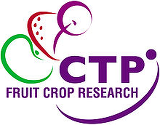REFERENCE: CTP_FCR_2021_12
Supervisors: Dr Tom Pope (Harper Adam University); Dr Glen Powell (NIAB EMR); Dr Ali Karley (JHI)
This student will be registered with the University of Harper Adam University. Beginning in October 2021, the successful candidate should have (or expect to have) an Honours Degree (or equivalent) with a minimum of 2.1 in Entomology, Zoology, Plant Science, or other related science subjects.
Background
Populations of the potato aphid (Macrosiphum euphorbiae) feeding on potato have been shown to have resistance to the aphid parasitoid Aphidius ervi, but it is not clear whether parasitoid-resistant populations of the same species of aphid are also causing pest damage on strawberry. Resistance to parasitism has not been investigated in aphids on soft fruit crops but this information is critical for refining biocontrol strategies. For example, if the potato aphids were found to be resistant to A. ervi then releases of a different parasitoid, such as Praon volucre, is likely to be a better option.
In the UK, potato aphids are almost entirely asexual, so clones persist from one year to the next, surviving winter conditions as live nymphs and adults, and it is likely that some clones are very successful and widespread. A recent study of the population structure of M. euphorbiae on UK potatoes at James Hutton Institute (using molecular markers to characterise aphid genotypes) showed that aphids collected from several locations had resistance to the parasitoid A. ervi. All of the resistant aphid colonies belonged to a single genotype, and their resistance to parasitism was determined by aphid genetics and not related to infection with facultative endosymbionts (bacteria that are present in some aphid populations, including M. euphorbiae, and have been shown to protect against parasitoids in other aphid species). While the parasitoid-resistant aphid genotype was common on potatoes and has been detected in suction trap samples, it is not known whether the same aphid genotype also infests soft fruit crops.
Objectives and approaches
This project will investigate parasitoid efficacy for early-season control of the potato aphid.
In this project, the aphid colonies will be sampled from a geographic spread of commercial soft fruit crops in the early season. The presence of parasitoids developing within collected aphids will be determined and clonal populations established from each sample of aphids. From these clonal aphid populations, the ability of aphids to resist parasitism by different parasitoid species (e.g. A. ervi and Praon volucre) will be determined and aphid genotype will be characterised by microsatellite analysis. In addition, work will be completed to characterise endosymbionts associated with each aphid clone and to investigate what, if any, effect these endosymbionts have on aphid resistance to parasitoids on soft fruit crops.
Training
The successful candidate will gain a wide range of experience in entomology, integrated pest amangeemnt, and horticulture.
Application
Anyone interested should fill the online application form before the deadline of 8th February 2021. If need further help or clarification, please contact recruitmentctp@emr.ac.uk.
Contact Dr Tom Pope for an informal discussion on research contents.
